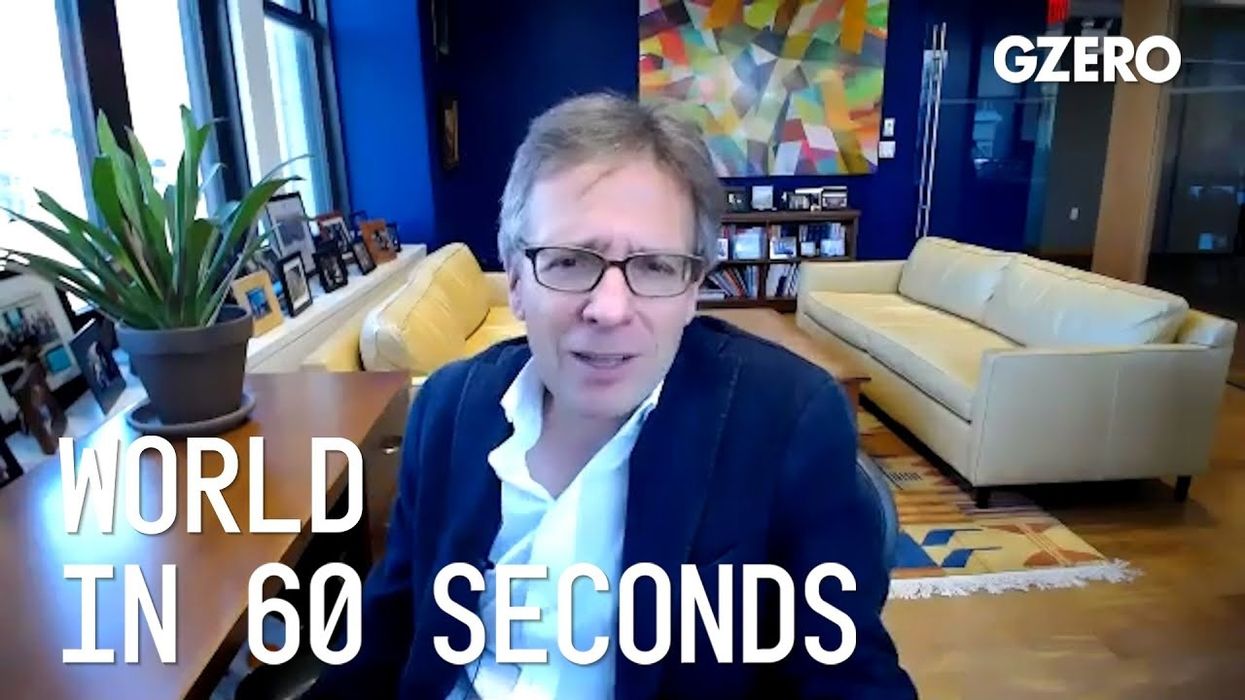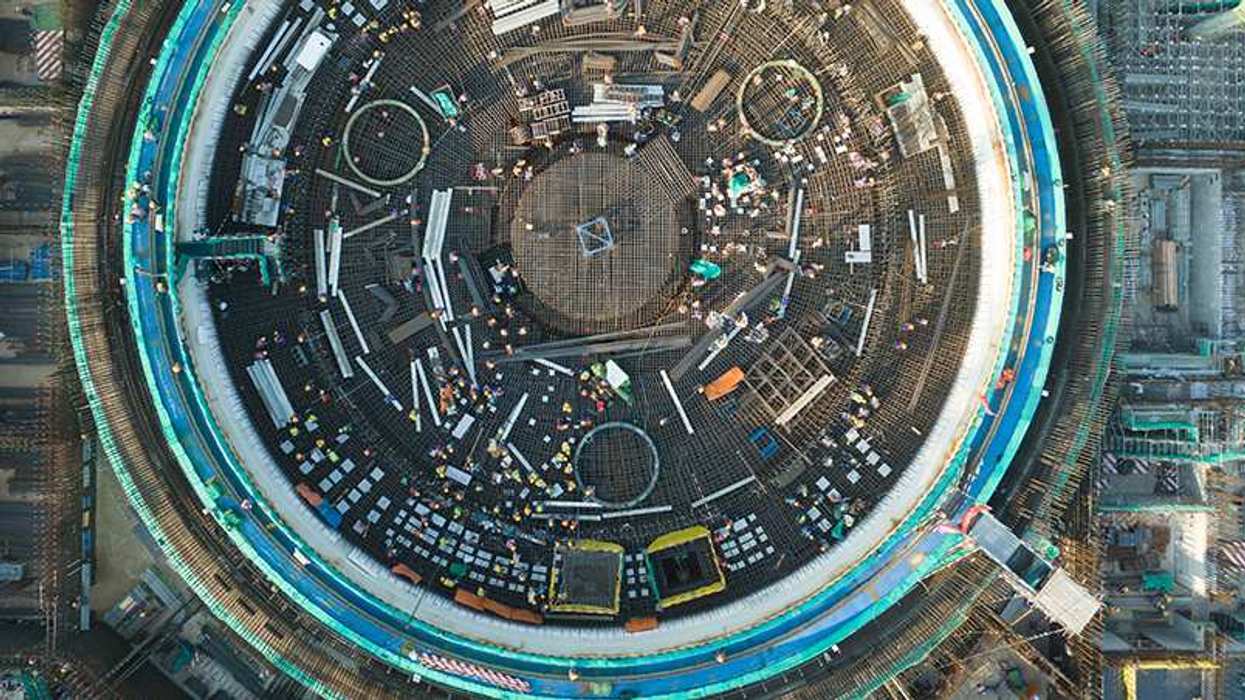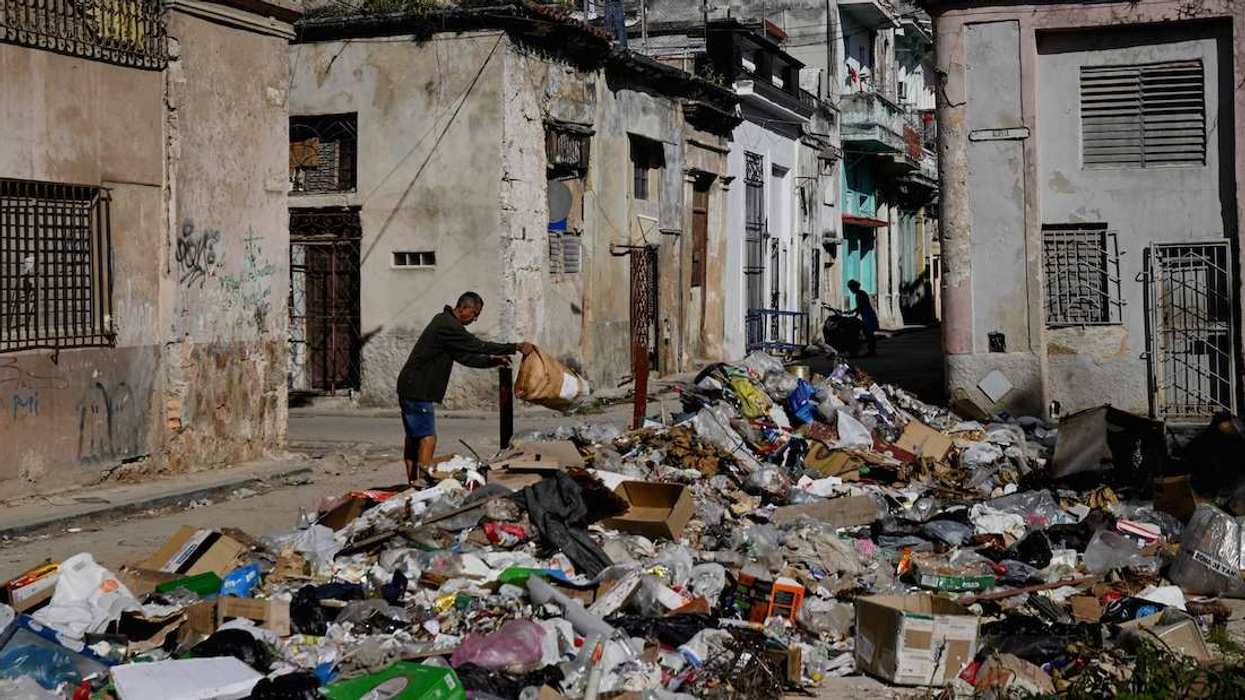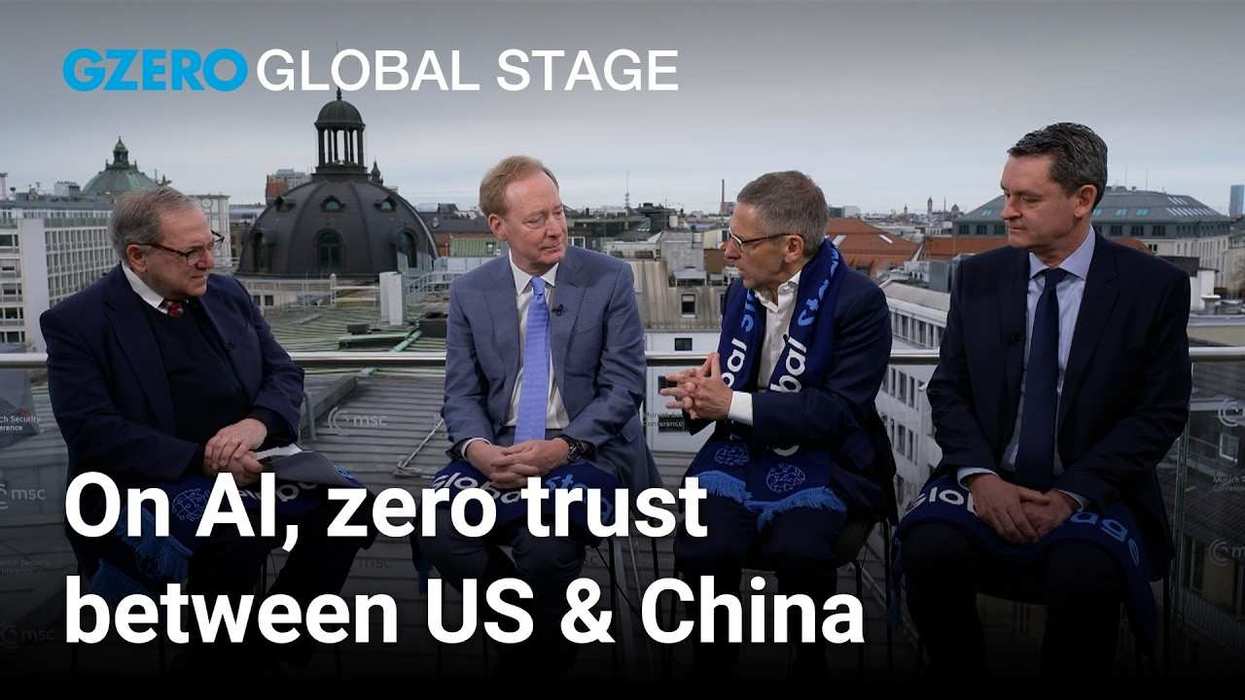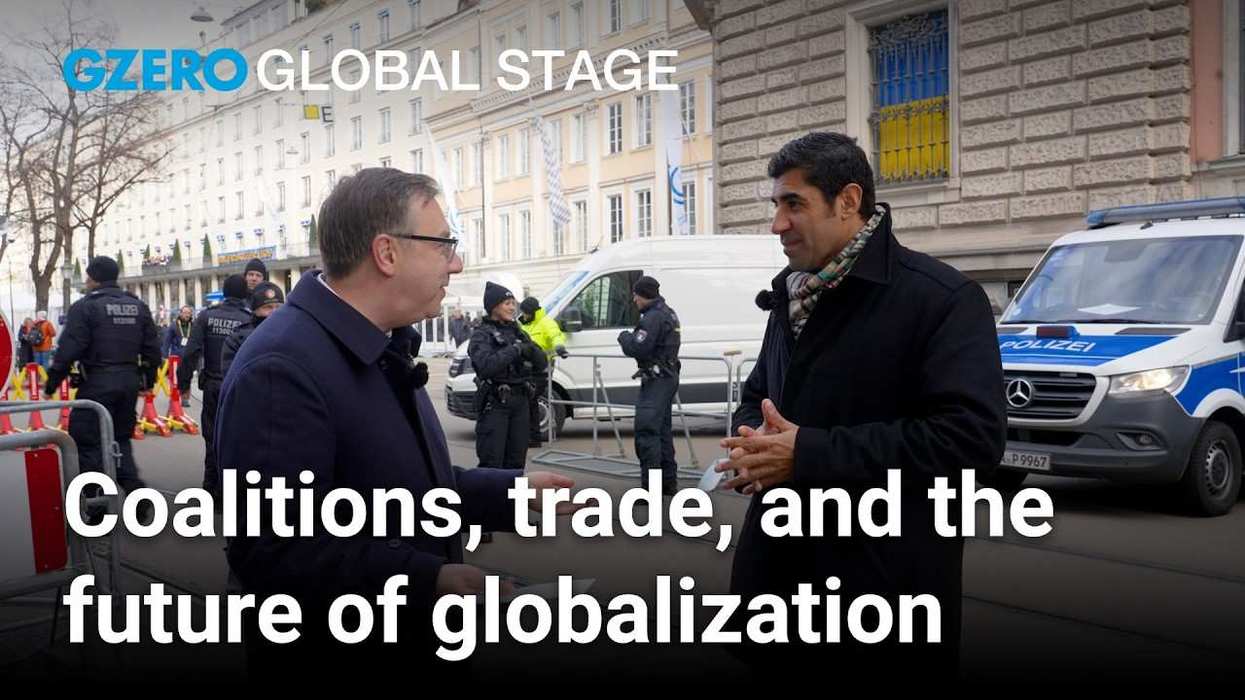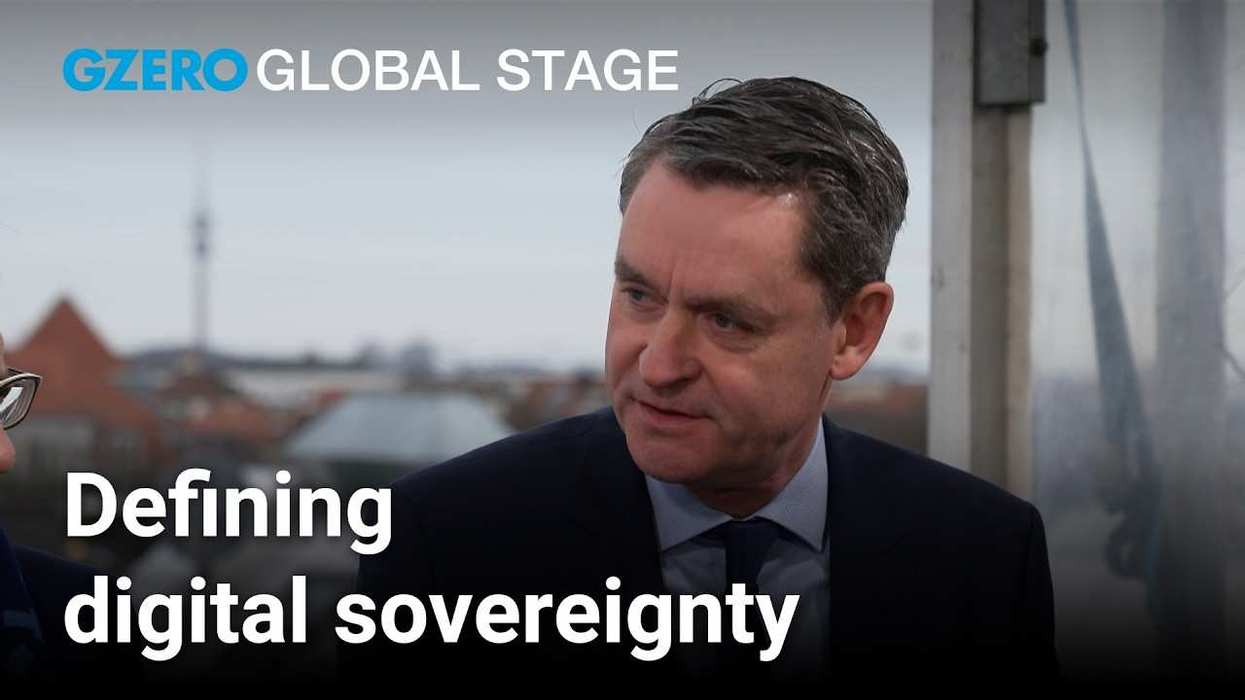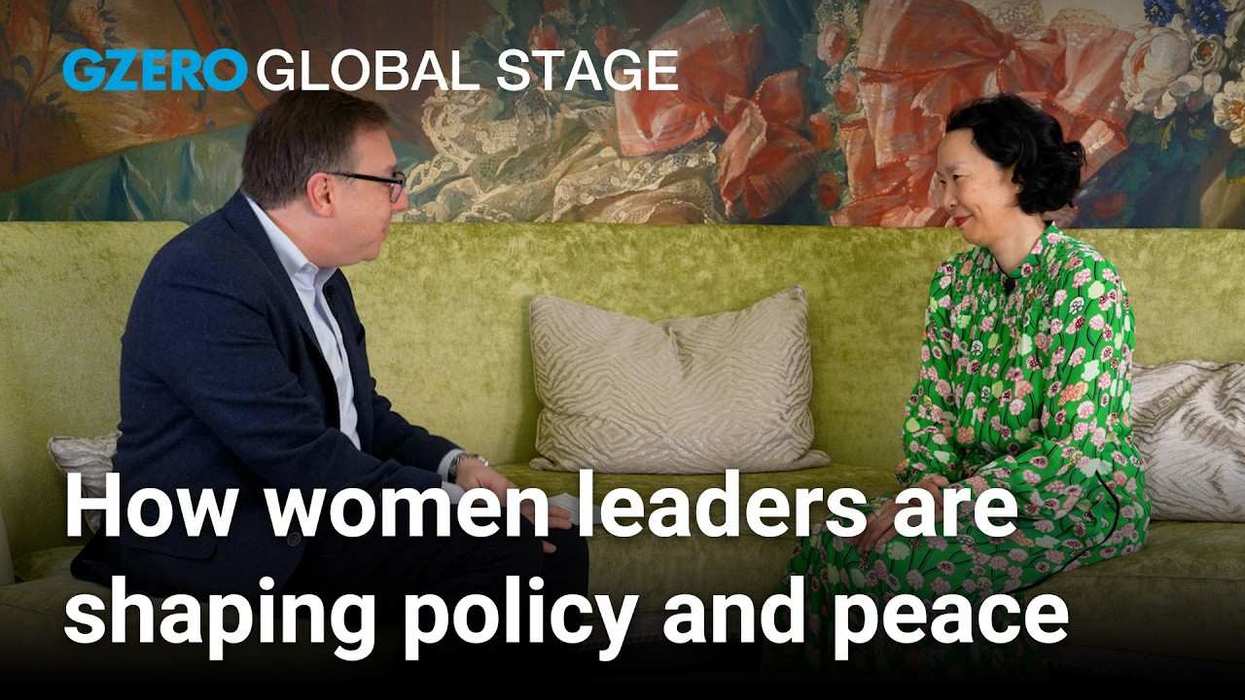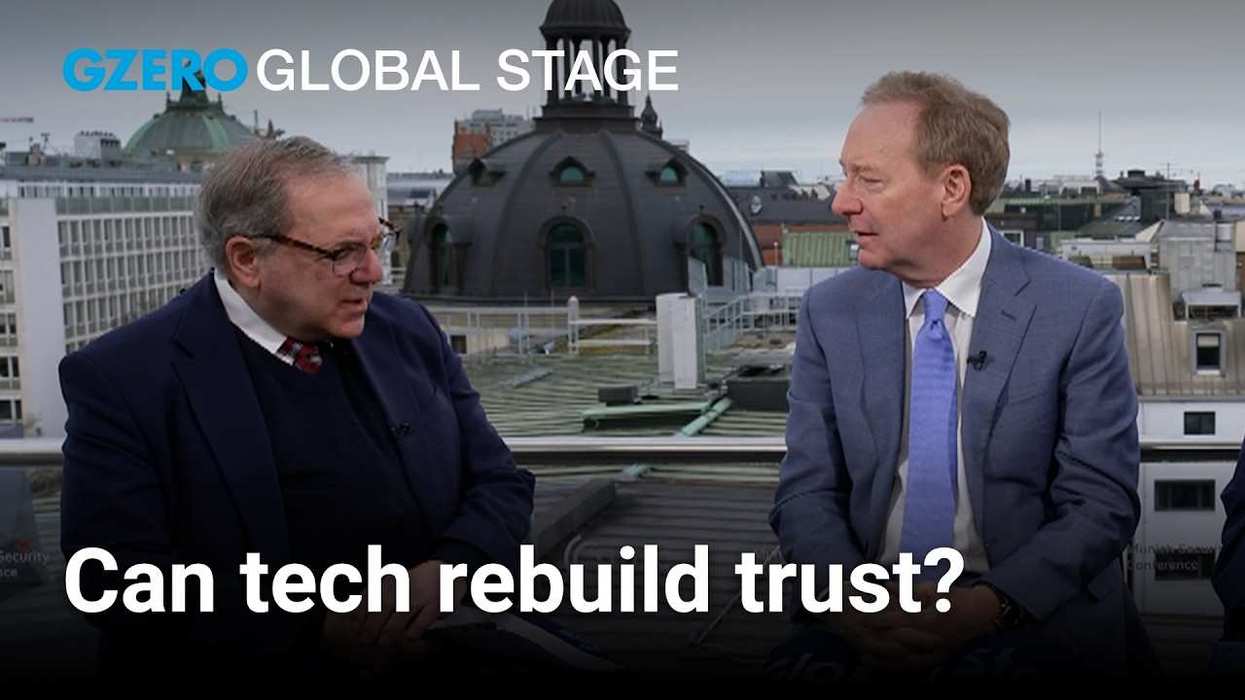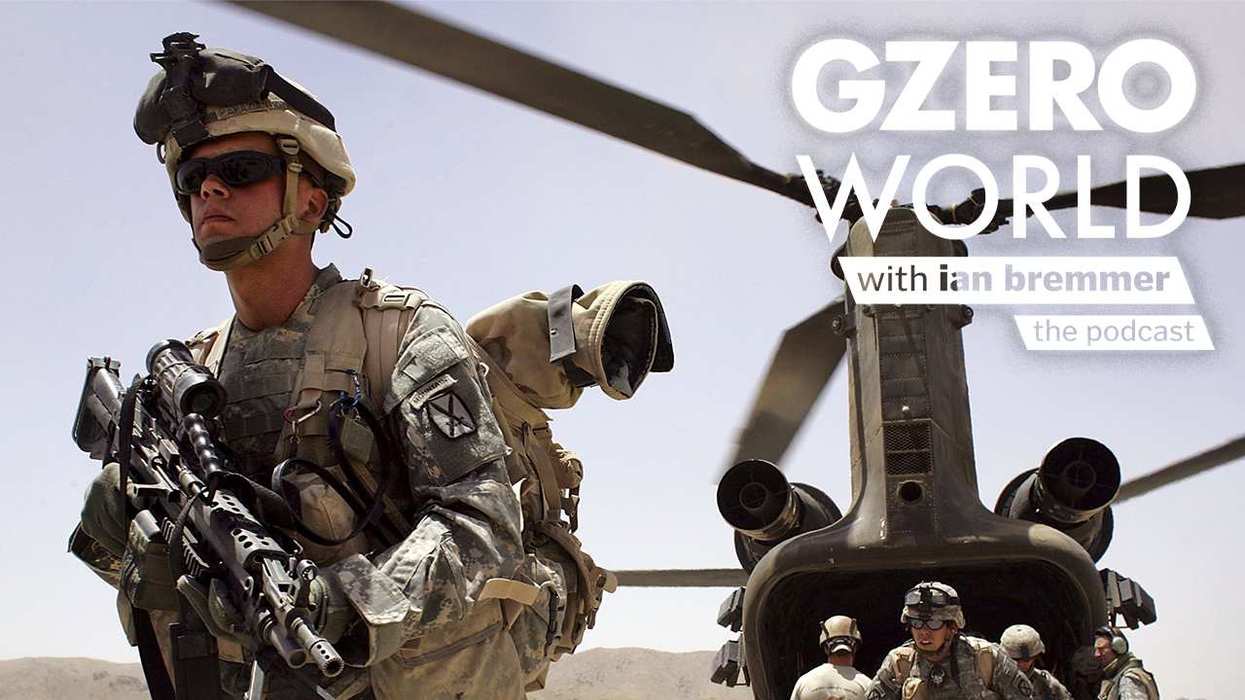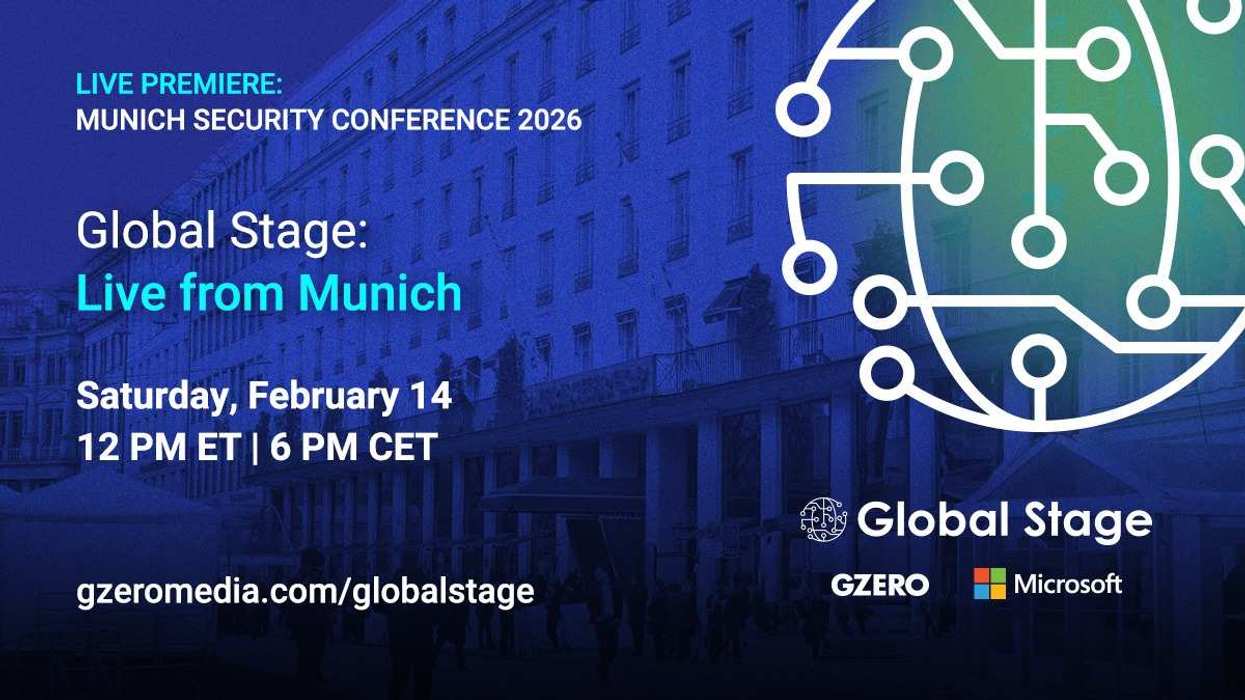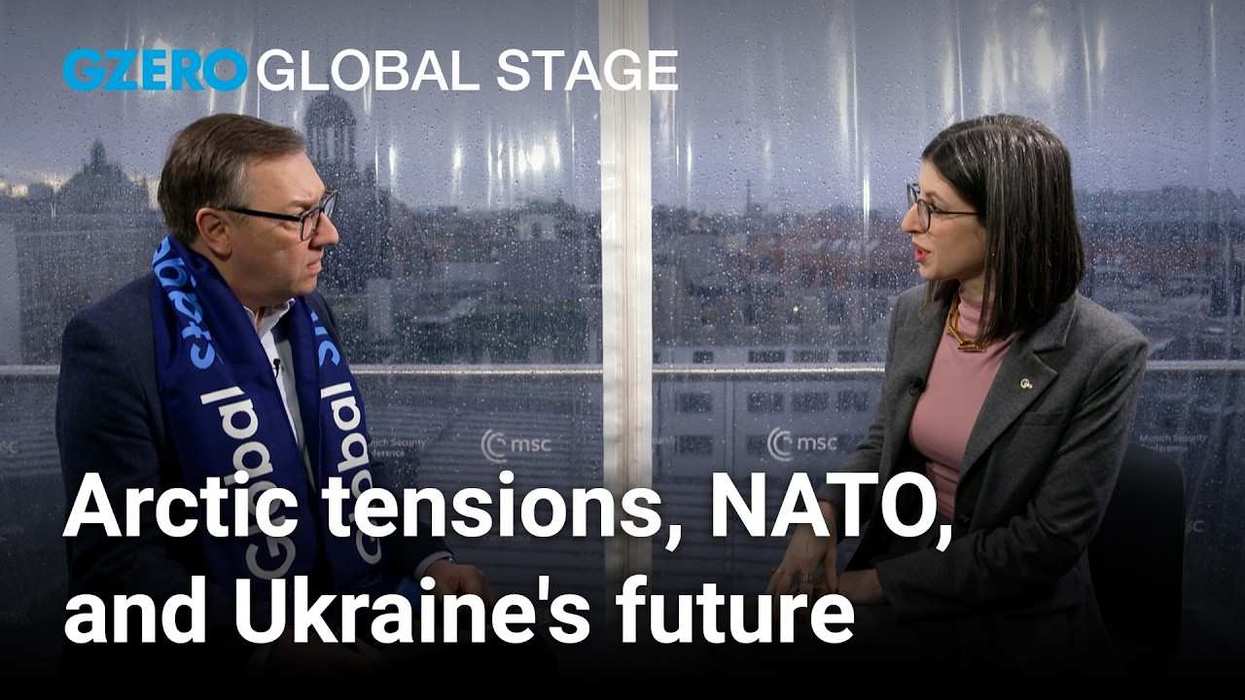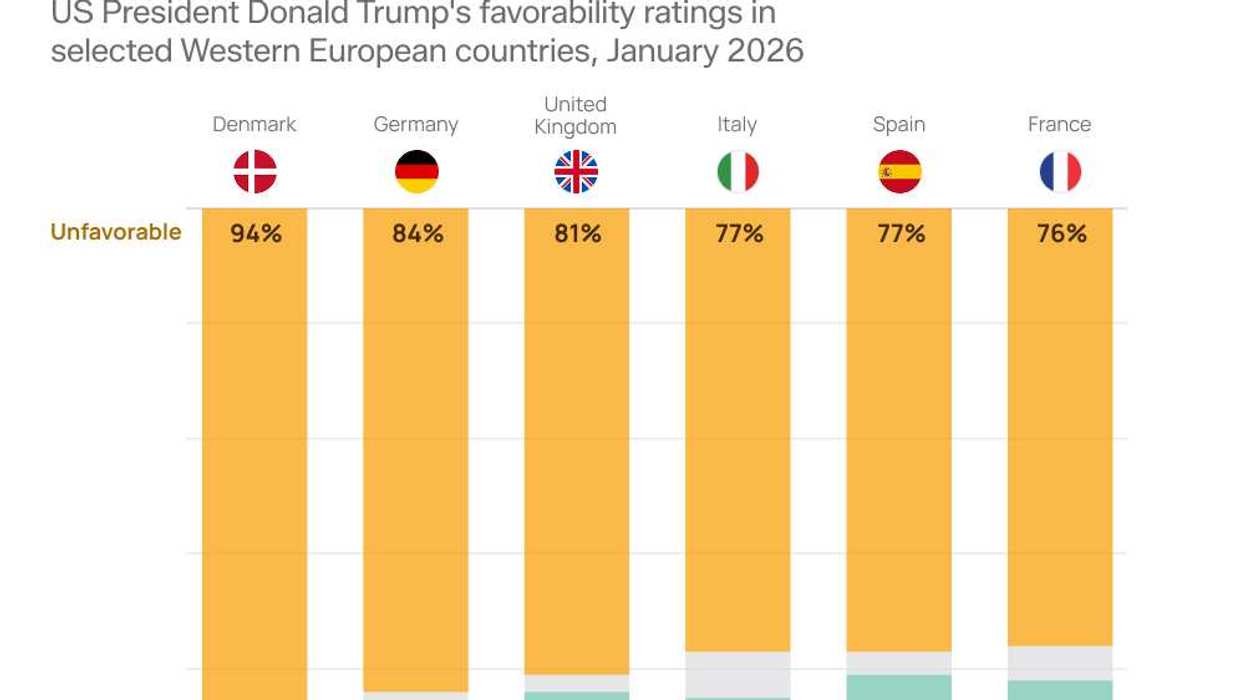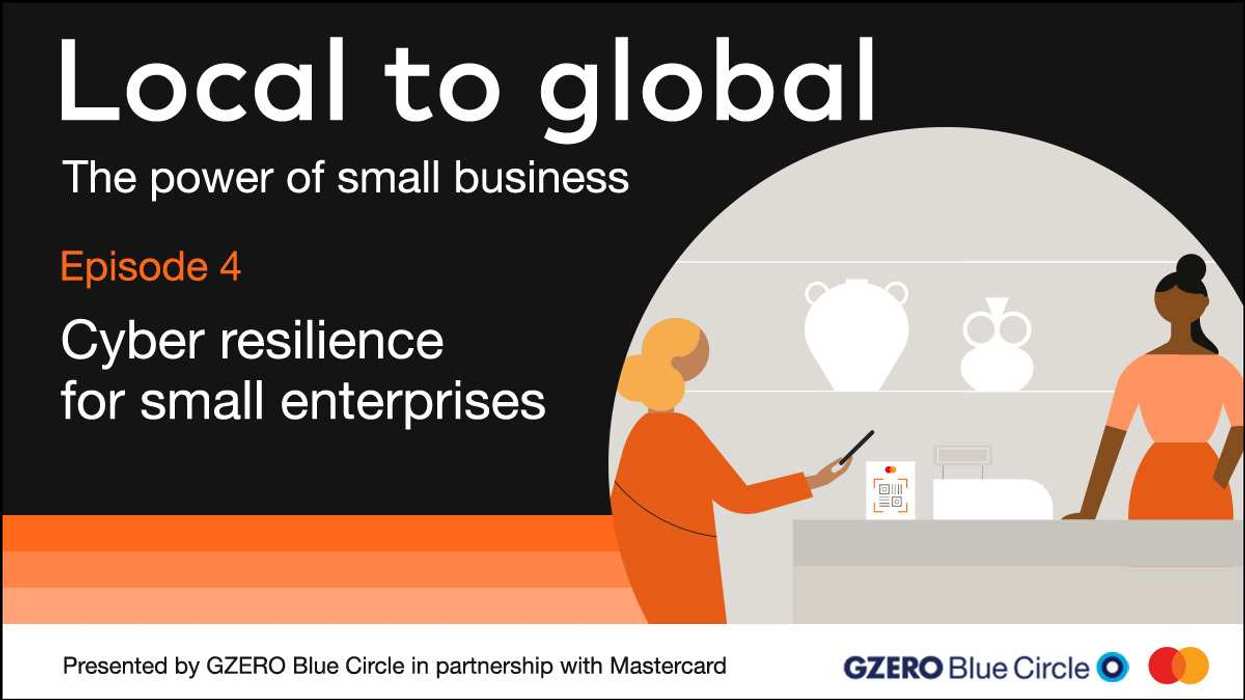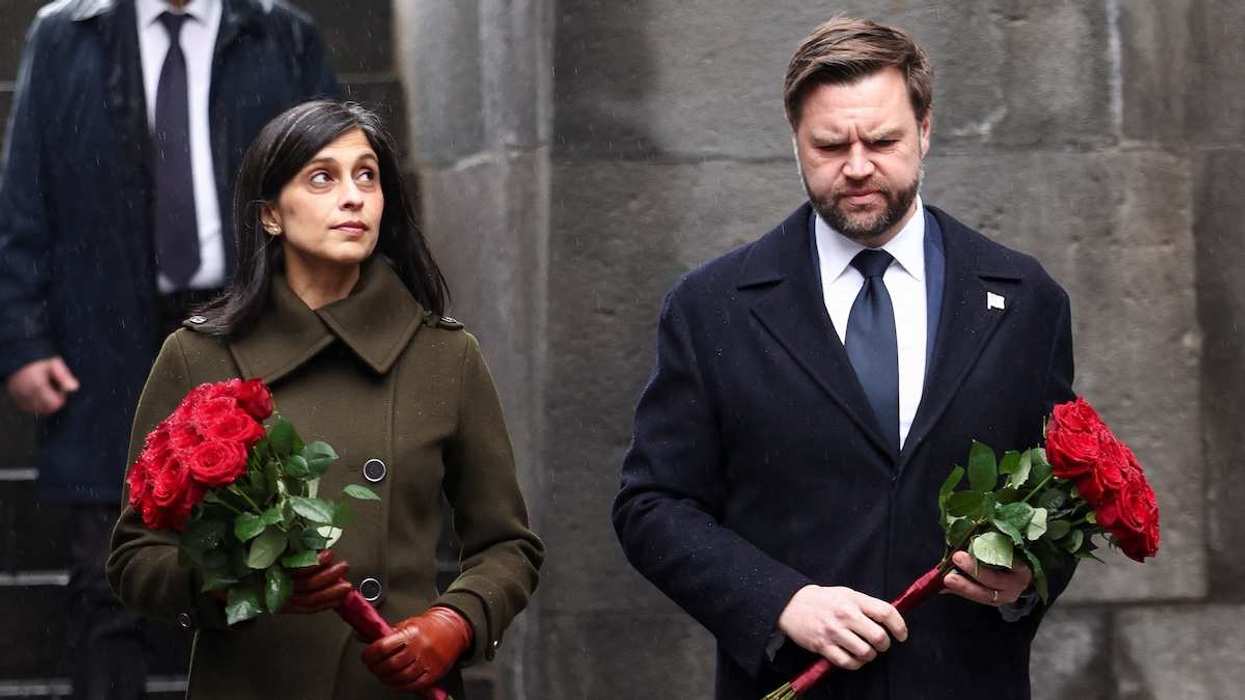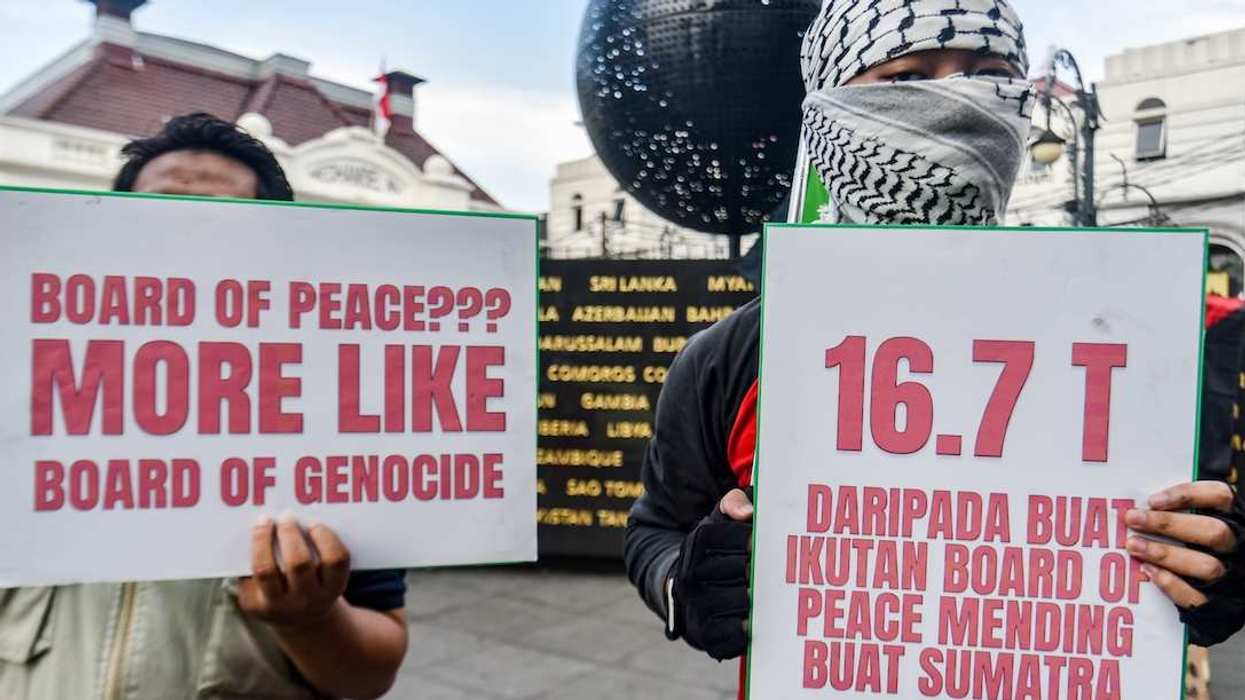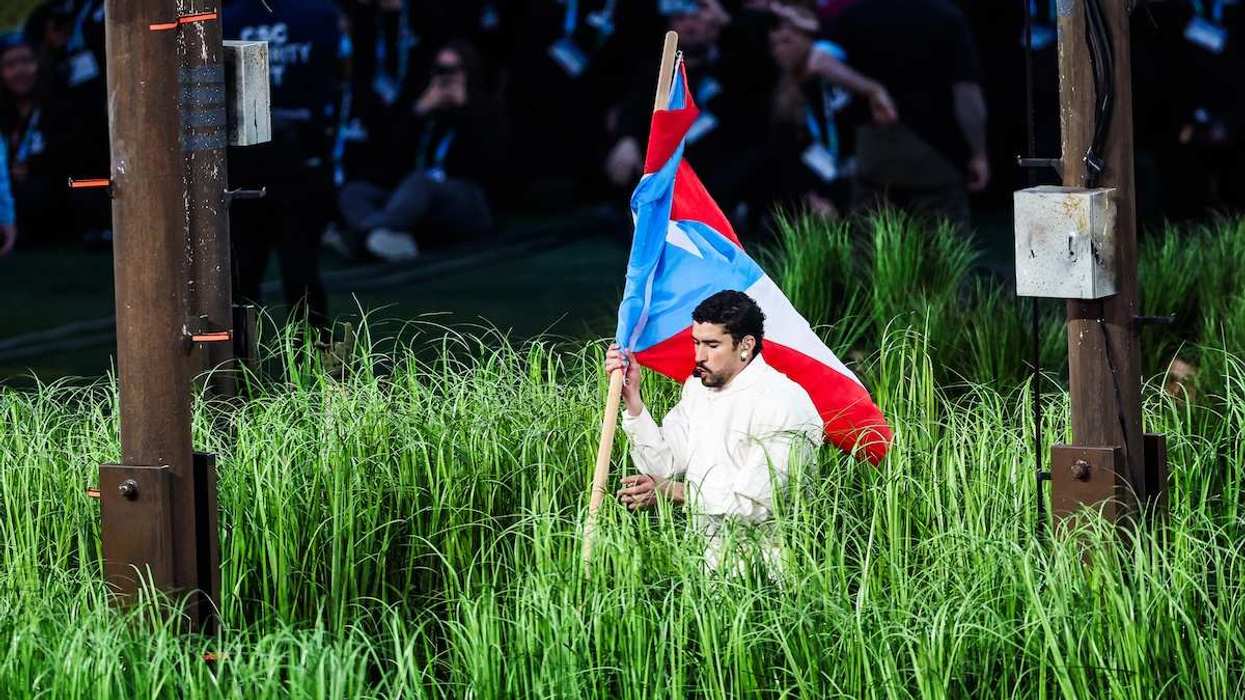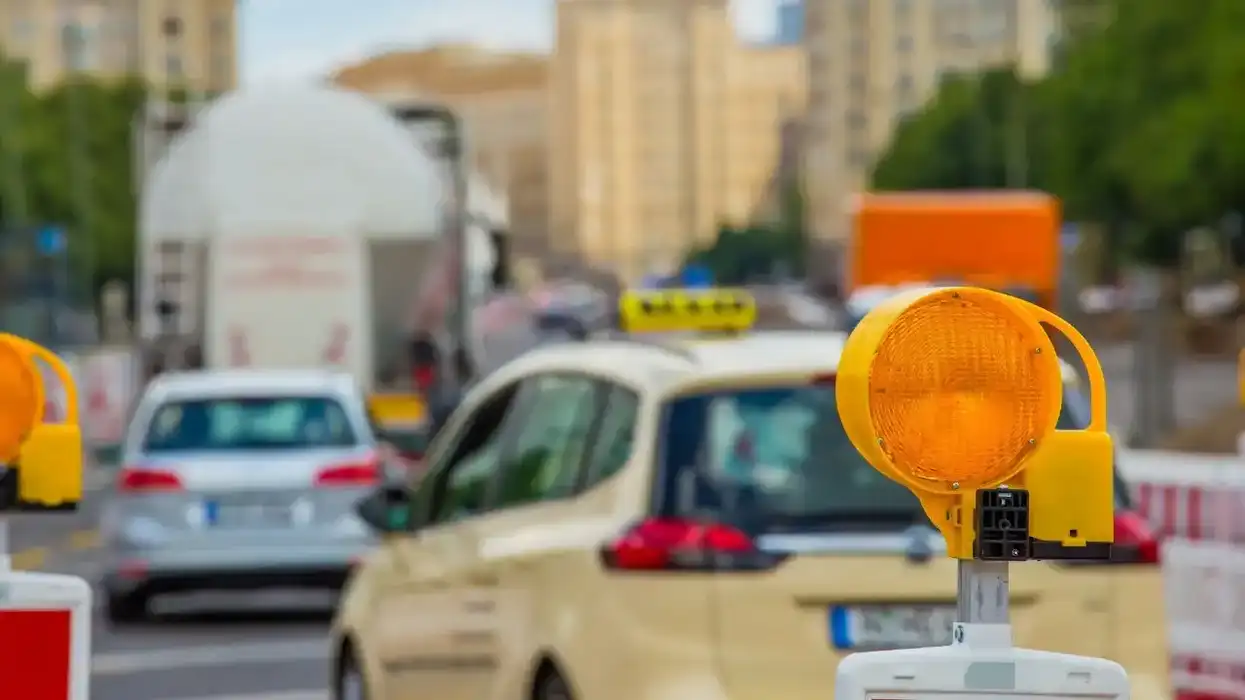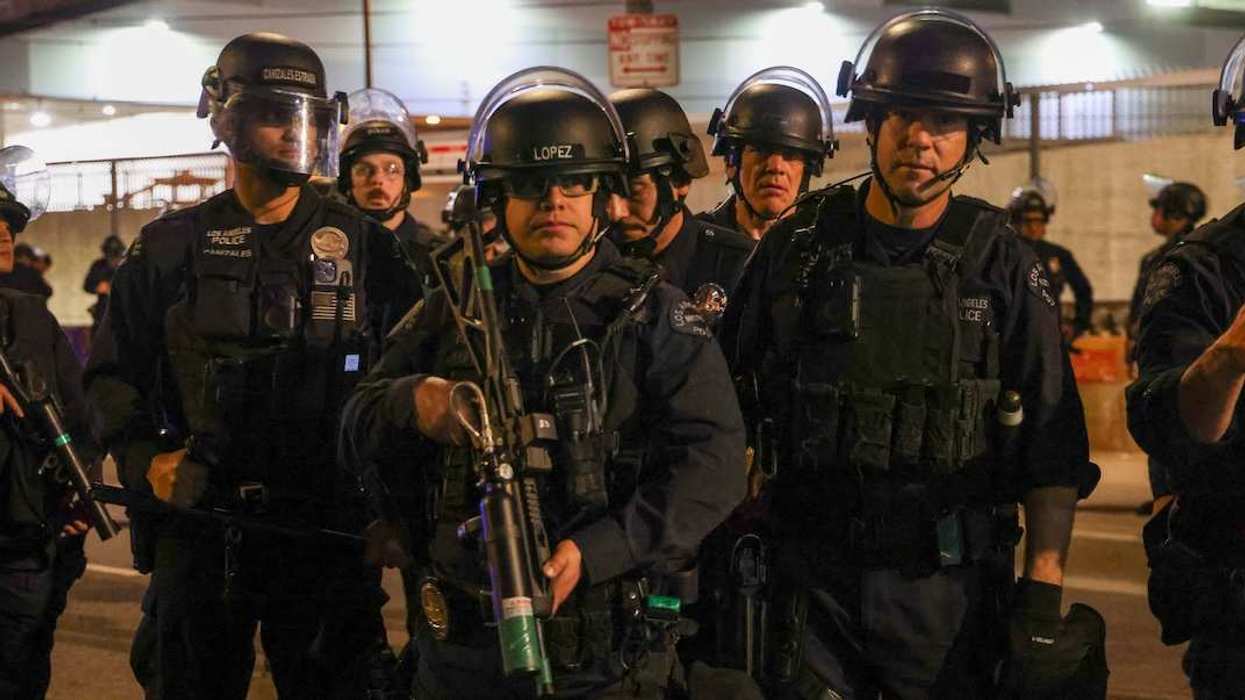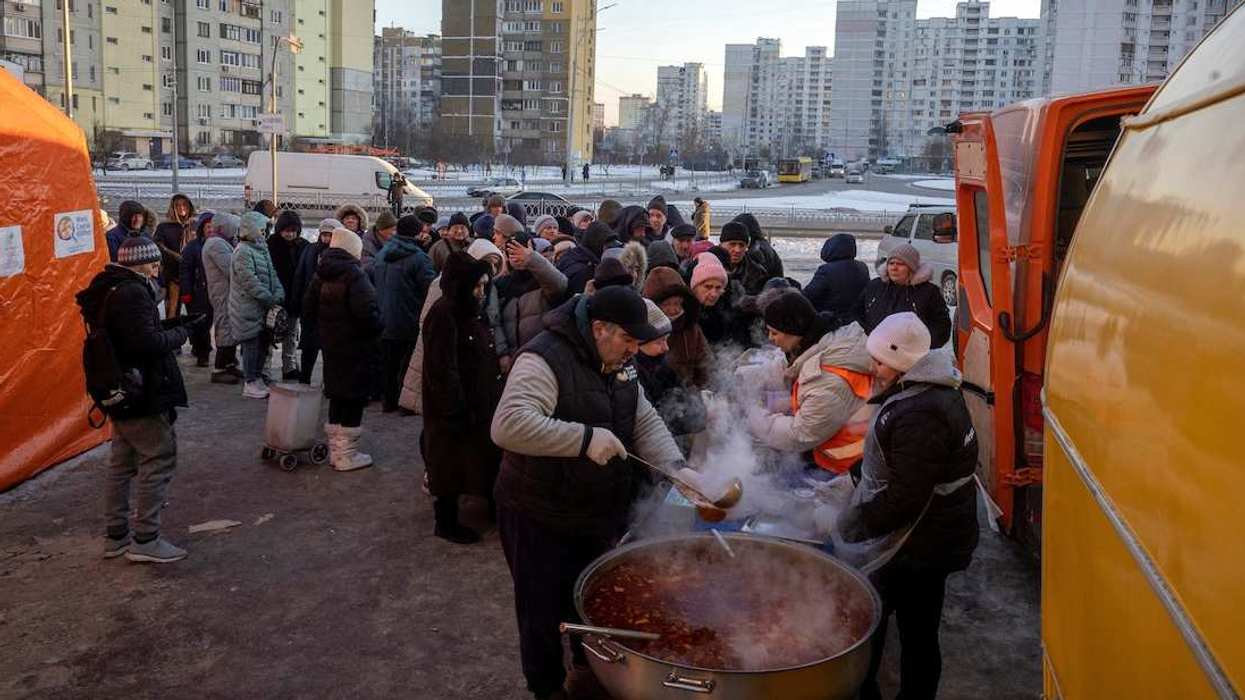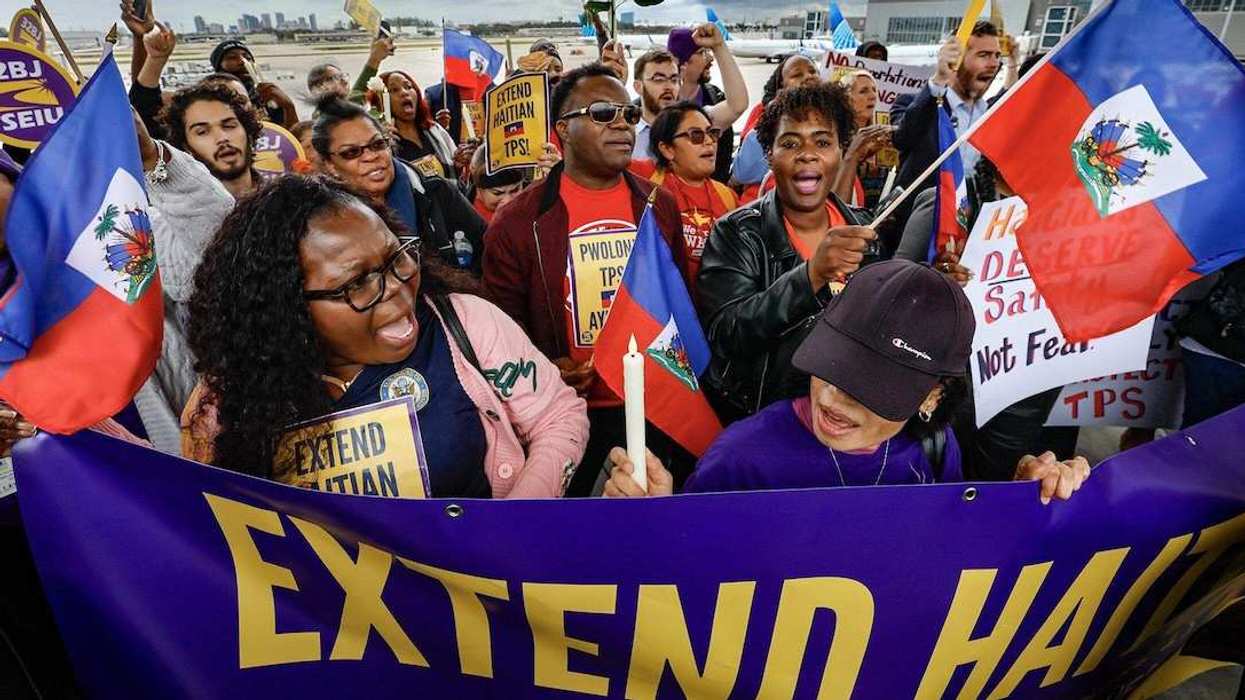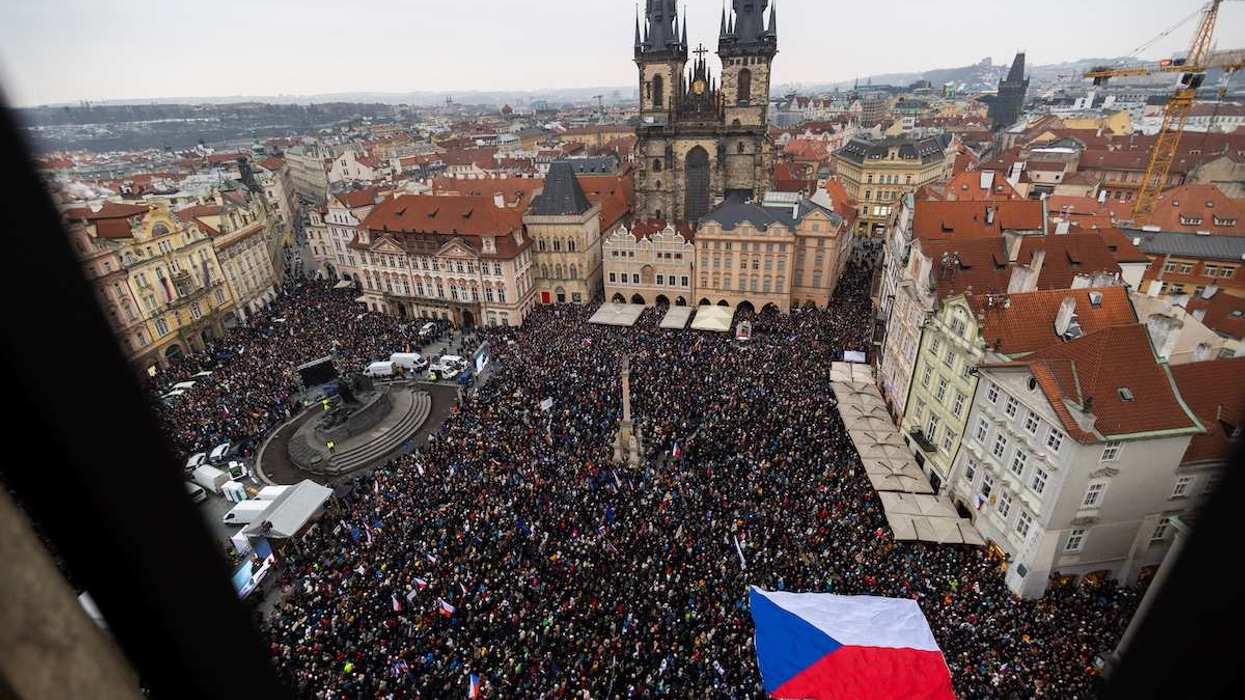VIDEOSGZERO World with Ian BremmerQuick TakePUPPET REGIMEIan ExplainsGZERO ReportsAsk IanGlobal Stage
Site Navigation
Search
Human content,
AI powered search.
Latest Stories
Sign up for GZERO Daily.
Get our latest updates and insights delivered to your inbox.
Global Stage: Live from Munich
WATCH RECORDING
Science & Tech
The geopolitics of science and technology: GZERO's news coverage and analysis of how scientific and tech developments impact the world's economy and society.
Presented by
What is the coronavirus update? Have emerging markets been spared so far?
The biggest news is that the US might have a lot more mortality from coronavirus than previously expected in the models. Particularly as we start seeing opening of economies. The US is a federal system and states don't necessarily listen to each other. They don't follow the federal government, and people don't necessarily pay attention to what state governments say. Put all that together, expect to see a lot more people get sick. Whether that is 3,000 or 800 deaths a day, two wildly different models, for the next month. What I've seen so far makes me feel a bit more optimistic, because opening up economies isn't people in full engagement. Big difference in what government says and what people do.
Have emerging markets been spared so far?
Not at all. But, it is hitting emerging markets a little later. Also, numbers of cases are suppressed by the fact that they're not doing as much testing. In some cases, also suppressed by the fact that maybe there is reduced transmission with much warmer weather. I hope that's the case, but the doctors aren't agreed. Either way, the developing world is focusing more on keeping economies open than at extended lockdowns. For some of the poorest countries, like in sub-Saharan Africa, where average age can be under 20, and economies aren't as globalized, in many cases, focused more on agriculture, the fact that they are as underdeveloped as they are is ironically buffering and protecting them from the worst of the coronavirus crisis.
What are the consequences of US-China blame game over coronavirus origins?
The most important consequence is that we'll see more confrontation and less interdependence between the two economies. The Americans will be investing less in China, reducing supply chain footprint, allowing Chinese to invest less in the United States, much more scrutiny. Some key American allies will be doing the same. In the wealthier European states. In Japan, for example. But the Americans are not getting coordination from allies. In part, that's about Trump. In part, that's about the way they've decided to engage in blame. Particularly the last couple days, saying this came from a lab in China and the secretary of state and President Trump saying there is conclusive evidence, strong, very strong evidence that that is the case. The Americans have shared that intelligence with key allies and the allies are saying this is all open source. There's nothing conclusive and we don't buy it. Even Australia, which can't stand the Chinese right now, getting into a big fight, not supporting the Americans. Really overplaying their hand. There's no reason why the Americans can't focus on, there was a cover up, it came from China, we're blaming the Chinese for that. But by going too far, it's like the weapons of mass destruction moment that Colin Powell, Dick Cheney, had in the Bush administration on Iraq. The Americans lose more credibility hitting the Chinese on this.
Finally, what's going on in Venezuela?
According to the Venezuelan government, there was an effort to invade and stage a coup against Mr. Maduro, that included two Americans, former Green Berets, they are saying. The Venezuelan opposition are denying. The American government is denying. We have no idea what the truth is. You can't imagine the American government saying, that was us, if that was indeed the case. But the Venezuelan government has even less credibility than the US and the opposition. It would not surprise me at all if there were a couple of Americans involved in a military incident. That doesn't mean that it was supported directly or indirectly by the US government. They could be mercenaries for hire. They could be ideologically aligned. They could be dual nationals, Venezuelans or Colombians. There's been a lot of talk, but no one in the Trump administration, now that Bolton is gone, actively interested in a military solution for Venezuela. In fact, Trump was resistant for Bolton's hard line. He was undermining Bolton both privately and publicly. So, I'm deeply skeptical of that, as I'm deeply skeptical of most things that come out of the Venezuelan government these days.
Keep reading...Show less
More from Science & Tech
Venezuela cracked. Will Cuba follow?
February 18, 2026
ask ian
Feb 18, 2026
What’s Good Wednesdays™, February 18, 2026
February 18, 2026
Meet Puppet Regime’s puppet master
February 18, 2026
Graphic Truth: Is government making peoples' lives worse?
February 18, 2026
Nuclear is back on the global agenda
February 18, 2026
Walmart’s $1 billion investment is strengthening associate careers
February 18, 2026
Global technology leaders launch Trusted Tech Alliance
February 18, 2026
Can we rebuild the Internet for democracy?
February 17, 2026
Two Americas on display in Munich
February 17, 2026
Froman: The world is "adjusting" to Trump's tariff power
February 17, 2026
GZERO World with Ian Bremmer
Feb 16, 2026
Ian Bremmer: The US–China AI space has “Zero Trust”
February 15, 2026
Why countries are picking their own alliances
February 15, 2026
What does “sovereign cloud” really mean?
February 15, 2026
The power of women leaders in global decision-making & peacebuilding
February 14, 2026
NATO’s new normal: “We may not be at war, but we’re not at peace”
February 14, 2026
Quick Take
Feb 14, 2026
Can tech rebuild trust?
February 14, 2026
President Trump's power-first foreign policy with CFR's President
February 14, 2026
Ian Explains
Feb 13, 2026
Hard Numbers: Valentine’s Day Edition
February 13, 2026
US-Iran talks: Are strikes inevitable?
February 13, 2026
You vs. the News: A Weekly News Quiz - February 13, 2026
February 13, 2026
Are we in an era of "wrecking ball politics?"
February 12, 2026
Munich Security Conference: Can Europe defend itself without the US?
February 12, 2026
Graphic Truth: Where risk is heating up the fastest
February 12, 2026
Graphic Truth: Europe isn't loving Trump
February 12, 2026
US government to fund MAGA-aligned groups in Europe
February 12, 2026
Puppet Regime
Feb 12, 2026
Cyber resilience for small enterprises
February 12, 2026
Sanae Takaichi has the power to change Japan
February 11, 2026
Post-Gen Z revolution, where does Bangladesh go next?
February 11, 2026
What’s Good Wednesdays™, February 11, 2026
February 11, 2026
Football wins, local economy scores
February 11, 2026
Walmart’s $1 billion investment is strengthening associate careers
February 11, 2026
Building community-first AI infrastructure
February 10, 2026
Venezuela’s window is open – but only a little
February 10, 2026
Venezuela’s new reality
February 10, 2026
Trump says Modi says he won't buy more oil from Russia
February 10, 2026
Freedom of expression at the Olympics
February 09, 2026
Bad Bunny makes it to the Oval Office
February 09, 2026
US troops arrive in Nigeria
February 09, 2026
Trump announces new Olympic games
February 09, 2026
Inside Mastercard’s vision for smarter, connected mobility
February 09, 2026
Is the tide turning on Russia’s sports exile?
February 06, 2026
You vs. the News: A Weekly News Quiz - February 6, 2026
February 06, 2026
Graphic Truth: India's imports of Russian oil
February 05, 2026
The American experiment in Liberia
February 05, 2026
The Debrief
Feb 05, 2026
Renters catch a break
February 04, 2026
Is Trump about to strike Iran (again)?
February 04, 2026
Walmart’s commitment to US-made products
February 04, 2026
What’s Good Wednesdays™, February 4, 2026
February 04, 2026
Is China’s currency coming for the US dollar?
February 04, 2026
Haiti is on borrowed time
February 03, 2026
Building community-first AI infrastructure
February 03, 2026
Epstein and America’s two-tier justice system
February 03, 2026
Why Singapore sees AI as an opportunity, not a threat
February 03, 2026
Trump’s next move in Iran
February 02, 2026
The politics of population
February 02, 2026
How Singapore navigates a fragmented world
February 02, 2026
Singapore's global moment, with President Tharman Shanmugaratnam
January 31, 2026
Singapore thrived on globalization. Now what?
January 30, 2026
GZERO Series
GZERO Daily: our free newsletter about global politics
Keep up with what’s going on around the world - and why it matters.
